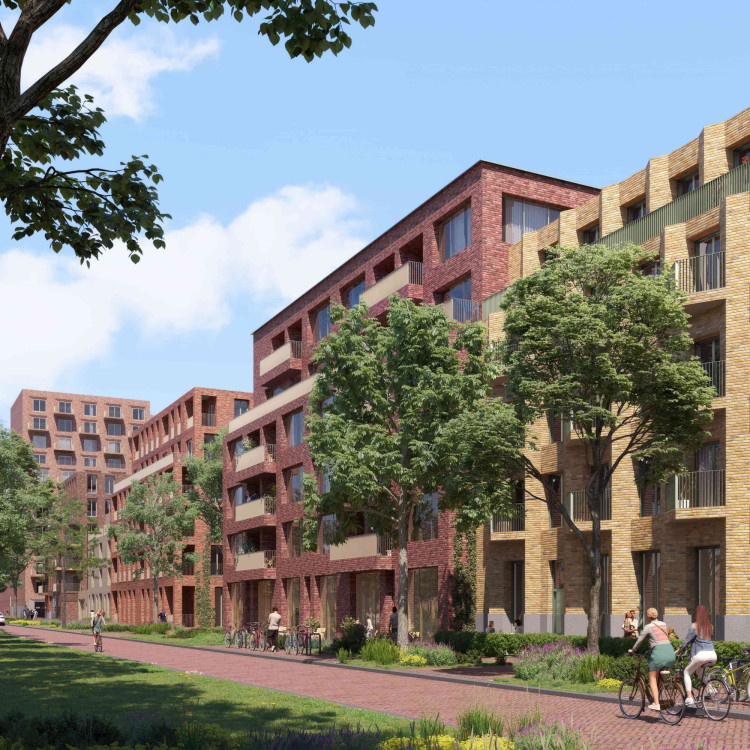Timmermans received the Paris Proof Commitment enthusiastically as it fits with his upcoming Renovation Wave. The Renovation Wave is a plan to renovate and make buildings more sustainable throughout Europe. “If you can help us to improve the quality and planning on a European scale, and convince other countries to think in the same direction, the Renovation Wave will be a large success,” noted the vice president of the European Commission. Dutch Green Building Council director Annemarie van Doorn said after presenting the Commitment: “Timmermans is asking for high-quality plans and accepting ours as such is a great compliment. As a consequence we will be going to Brussels and will take our supporters with us. We will present our Commitment and show that measuring actual energy use is the best way forward.”
Rapid sustainability
From investors to bankers and from consultants to producers, organisations are signing the Paris Proof Commitment and pledging to make their own buildings and the buildings they use more sustainable as soon as possible, at the same time taking their customers and the government with them. The Paris Proof Commitment states that actual energy use is a more useful measurement than energy labels, as labels do not always give a complete picture of how energy-efficient a building is. The signatories say that actual energy use is a simpler approach. The C-label obligation and the “Wet Milieubeheer en de Erkende Maatregelen” are showing steps in the right direction, but these are focused on the short term whereas the Paris Proof goal is to move the market in both the short and long term. It fits with the climate agreement obligations to develop roadmaps. These are the first steps towards a long-term plan, and measuring energy by actual use is the next logical step.
What is Paris Proof?
Paris Proof is a term that the Dutch Green Building Council introduced as a common sustainable goal for urban buildings to achieve the Paris climate accords. Many buildings will need to be renovated and made more energy efficient. Energy production must come from sustainable sources, and as we cannot produce the same amount of sustainable energy as total energy used today, buildings will have to be redesigned to use no more than a third of current energy consumption. This is what makes a building Paris Proof.
Launching customers
The Paris Proof Commitment is exceptional as it is not an empty promise. The signatories are not only asking the government to take action, but also taking responsibility themselves and have made the first steps towards Paris Proof. They are committing to not only turning their own real estate Paris Proof, but also bringing market players along with them. This is necessary because the urban environment is responsible for almost 40% of all energy use in The Netherlands. The Dutch Green Building Council and the signatories of the Commitment ask that the government be a ‘launching customer’ and embraces Paris Proof for their own real estate. The government should measure actual energy use from now on, to allow for easier monitoring and enforcement.
Own ambition
In addition to binding themselves to the main Commitment, each party has shown which steps they will take in their own organisation. For example, ING Real Estate Finance NL has said they will only rent real estate that is energy neutral or will be by 2030, “and encourage clients to actively reduce energy use instead of just looking at energy labels.” Energy supplier Vattenfall says, “We show all business customers their energy use clearly in yearly statements presenting kWh use per square meter, and communicate actively on our Paris Proof ambitions.” Institutional real estate investor Bouwinvest has clear ambitions: “All our real estate portfolios will be Paris Proof by 2045 by rejecting fossil fuels, adding sustainable energy sources and making buildings extremely energy efficient.”
Find all the signatories to the Paris Proof Commitment on parisproofcommitment.nl >>


